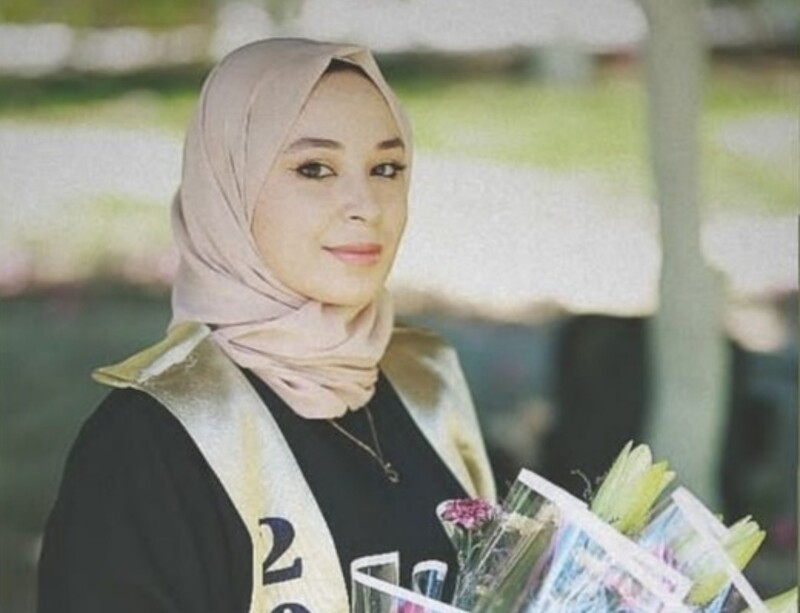The Electronic Intifada 14 June 2024

Jumana.
It took me 42 days to regain the ability to write. Writing about her is as difficult as accepting her loss.
Jumana, my university friend, is gone. A martyr.
Jumana, or Jeeji, as I used to call her, was her mother’s best friend, her father’s only daughter, and my heart’s delight.
She knew all the details and secrets of my days. She was the only one who knew my unrealistic dreams and encouraged me to pursue them. She answered all my silly questions with illogical answers. She was the best at understanding my glances.
She was everything. Now I have nothing.
I lost Jeeji on April 11. After the first cry, I became silent and remained so for many days, unable to comprehend my great loss.
Jeeji and her parents were killed when an Israeli missile hit a crowded market. There was no body left to bury.
Jeeji will have no grave. In Gaza, finding a grave for your loved one is a luxury. You are lucky if you find their whole bodies.
I don’t want to remember how Jeeji died. My memories of our conversations and time together and our photos are making me die slowly. I have aged quickly since her death.
Jeeji was the best face to see every day at university, though she often missed classes, which made me angry. She didn’t like waking up early, but our time together made up for what we didn’t like.
We would sit in our favorite place, first talking about lectures, then everything else. I loved bringing her a falafel sandwich, her favorite. We would eat, laugh, and take a lot of photographs.
Surviving
Jeeji was always perfectly dressed and often shared dress designs and photos with me and discussed the happy occasions on which she would wear these outfits.
She promised I would be with her on her wedding day, as she had no sister, and I eagerly awaited the occasion.
How lucky I was.
Jeeji always told me that I was like a mother to her and our friends. She said I was a healing power for them all because I checked on them every day.
What should I tell them now?
Shall I tell them I am not able to live up to the title Jeeji gave me?
That I am unable to wipe away their tears?
That I won’t be able to gather them all at once?
I write this to accept Jeeji’s absence from my life. Losing her has drained what little hope remained. The hope I stored in my chest to protect it from the many arrows of despair.
Jeeji, like this hope, clings to what remains of my heart, which sought to preserve something called love amid all this hatred.
Every fear that haunted me would have left if she had stayed. Every sorrow that devoured me would have vanished if she had been by my side. Every wound that pained me would have healed if her eyes could still see me.
But Jeeji is not here, and the fear will not go away, the sorrow will not fade, and the wound will not heal.
The world no longer means anything to me, and I no longer care about the end.
I am not the only one to lose a dear friend. I had often wondered how those who lose their best friends find the strength to continue. Now, I understand.
Jeeji will forever remain in my heart, my writings, my speeches, and my prayers. She didn’t die; she will live on through me. I will speak of her until my last breath, ensuring the world knows that our martyrs are not just numbers.
They were human, with dreams and lives.
Ghayda’a Hasan Owaidah is a writer, translator and voice-over specialist from Gaza.




